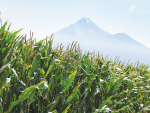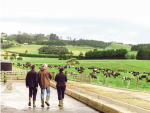According to a new report from the Food and Agriculture Organisation (FAO), without proper preparation unpredictable shocks will continue to undermine agrifood systems.
The 2021 State of Food and Agriculture (SOFA) report by FAO is titled “Making agrifood systems more resilient to shocks and stresses” and provides an assessment of the ability of national agrifood systems to respond to or recover from shocks and stressors. It also offers guidance to governments on how they can improve resilience.
Today there are approximately 3 billion people who cannot afford a healthy diet, according to the report.
The SOFA 2021 report estimates that an additional 1 billion people would join their ranks if a shock reduced incomes by one-third.
Moreover, food costs could increase for up to 845 million people if a disruption to critical transport links were to occur.
The report defines shocks as “short-term deviations from long-term trends that have substantial negative effects on a system, people’s state of well-being, assets, livelihoods, safety and ability to withstand future shocks.” Examples include extreme weather events and surges in plant and animal diseases and pests.
Even before Covid-19 broke out, the world was not on track to meet its commitment to end hunger and malnutrition by 2030.
While food production and supply chains have historically been vulnerable to climate extremes, armed conflicts or increases global food prices, the frequency and severity of such shocks is on the rise.
“The pandemic highlighted both the resilience and the weakness of our agrifood systems,” says FAO director-general Qu Dongyu at a virtual launch event.
“The SOFA report reflects FAO’s efforts aimed at increasing resilience and sets out new indicators to help Members measure the resilience capacity of their agrifood systems and identify gaps for improvement,” Qu says.



















